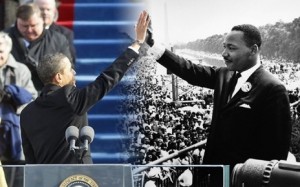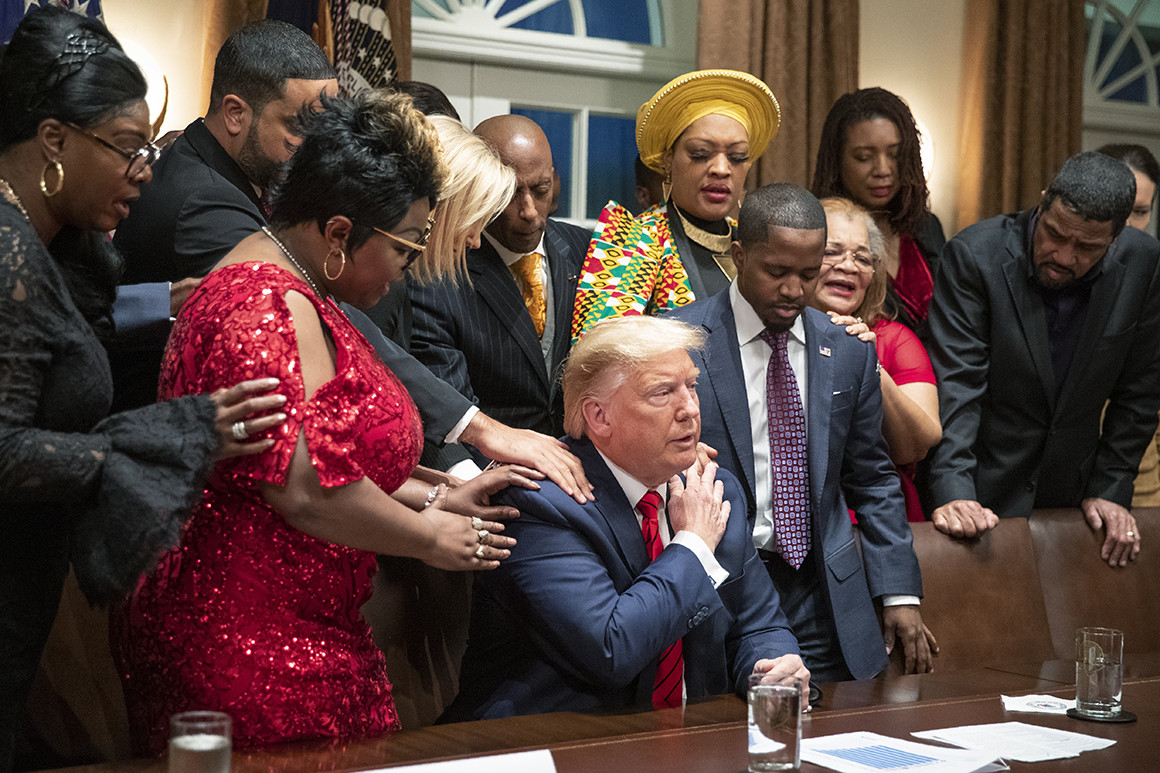(ThyBlackMan.com) President Barack Obama punctuated the official White House proclamation on the 50th anniversary of the March on Washington with the oft-quoted line from Martin Luther King Jr.’s, “I Have a Dream” speech imploring the nation to let justice to roll down like a mighty stream. Obama did not quote the even more oft-quoted King admonition from the speech that the content of character should trump skin color. And that was telling. The first line was a frontal challenge to the nation to wage tireless battle against racial discrimination and the equally corrosive injustices of racial violence, poverty, and war. King’s fight was against all three, and that eventually made him a pariah at the White House, and the target of the FBI’s decades long ruthless, relentless no holds barred assault on him.
Fifty years after the March, Barack Obama has been the target of the same relentless, ruthless and no holds barred assault from the GOP, coupled with an even more racially skewed snide and vengeful assault by right wing blogs, websites, and talk show hosts. Obama has been the recipient of more death threats than any other modern day president. In that sense, Barack Obama was right to cite King’s admonishment that the job the civil rights leaders started is far from over and the at times vile treatment of Obama is a powerful reminder of that.
threats than any other modern day president. In that sense, Barack Obama was right to cite King’s admonishment that the job the civil rights leaders started is far from over and the at times vile treatment of Obama is a powerful reminder of that.
But that’s, of course, only part of the five decade saga of racial struggle and change that Obama has benefited from and by at times been throttled by. Obama’s election did show that millions of whites were more than willing to punch the ticket for an African-American for the world’s most powerful political post. King would almost certainly glow with approval at that. But there are a couple of troubling caveats that mar America’s great racial leap forward.
Obama won in large part because he did what no other Democratic presidential candidate did, and that includes Bill Clinton. He turned his presidential campaign into a virtual holy crusade by African-Americans voters to get him in the White House. At the same time, the majority of whites in 2008 and even more so in 2012 voted for his GOP rivals. And they weren’t all Republicans, many were rural, and blue collar whites, many of whom were Democrats. Both presidential elections showed that the racial fault lines are still tightly drawn within a wide segment of the electorate.
Periodic surveys of racial attitudes also found that a significant percentage of whites who said they’d vote for Barack Obama also said that blacks were more crime prone and less industrious than whites. Other surveys including the recent Pew Center survey on race relation timed for release to coincide with the 50th March anniversary commemoration found the same racial disparities in income, wealth, housing, employment and the criminal justice system that plagued the nation in 1963 and that King and the civil rights leaders of his day fought against. Countless government reports and studies, and the National Urban League’s 2012 State of Black America report also found that discrimination and poverty are still major barriers for millions.
King’s special concern was poverty and how it had divided the country into two Americas, one wealthy, prosperous and in total control of the nation’s wealth and resources and the other America, poor, desperate and disproportionately minority. President Obama has taken much heat from black critics for not forcefully addressing the needs of that America, and more importantly as the critics claim not taking stronger, direct steps to alleviate the suffering. King almost certainly would have been careful not to lambaste Obama for the endemic poverty of millions or suggest that the president’s policies had anything to do with that poverty. This would have just played into the arch enemies of Obama but also of greater civil rights protections and ending income inequality. King, though, almost certainly would have been in the streets marching for economic justice. King’s willingness to do this not only made him persona no grata at the White House, but also put much distance between him and the established civil rights organizations of that day.
Obama has publicly bristled at the notion that the civil rights movement is outdated, or worse that he somehow supplants the ongoing work of civil rights leaders. He has repeatedly praised past civil rights leaders for their heroic battle against racial injustice. He did it again in his official March commemoration proclamation. But by not making any mention of King’s dream of a color free and economic justice assured nation, Obama conceded the obvious. That he and America are still chasing fulfilling the dream King had a half century ago.
Written By Earl Ofari Hutchinson
One can find more info about Mr. Hutchinson over at the following site; TheHutchinson ReportNews.
Also feel free to connect with him through twitter; http://twitter.com/earlhutchinson




















Ashame 50 years we STILL sanging the same old song. White people DO NOT like us – Do for Self geez.